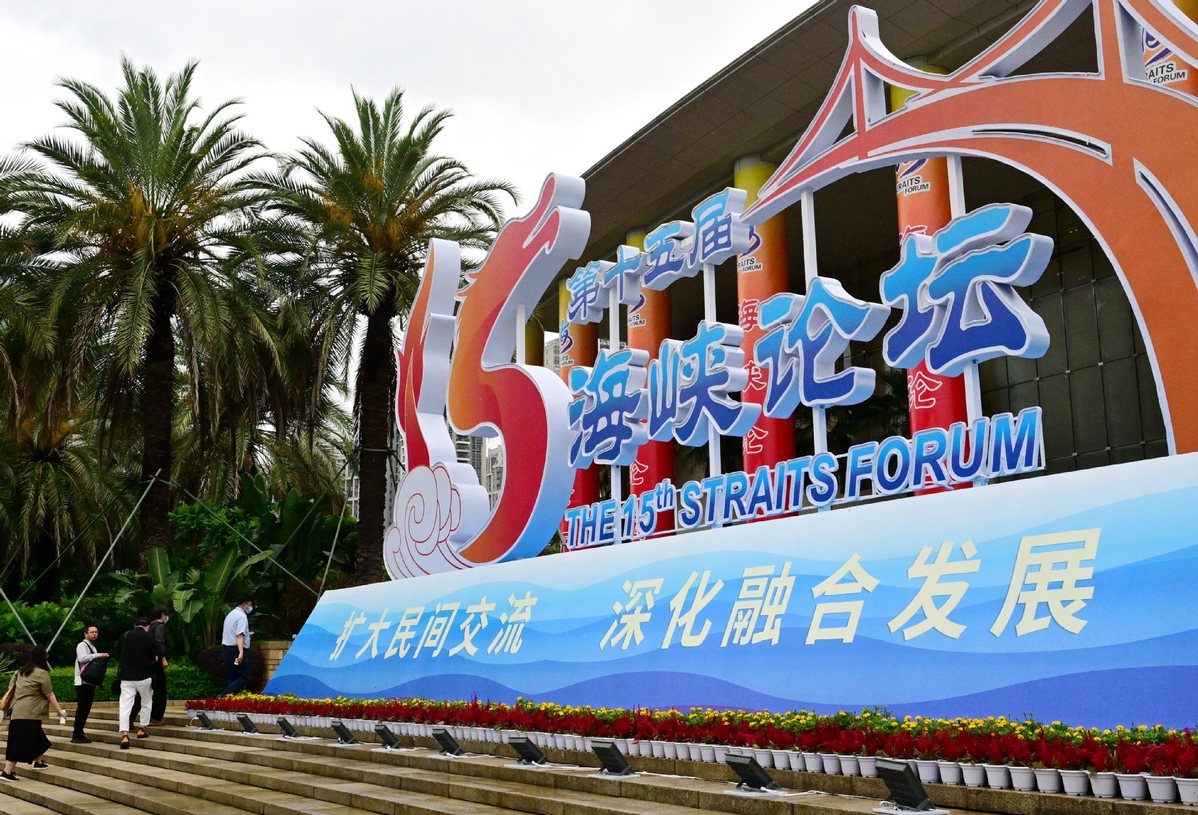Strait Forum counters Western narratives: China Daily editorial


In mainstream Western narratives and those of the pro-independence forces in Taiwan, the two sides of the Taiwan Strait are on the brink of war. They have fabricated the lie that as the Chinese mainland, which has been placed in a bully's role in those narratives, constantly upgrades preparedness for "a war of aggression" to reunify the island with the motherland, Taiwan must be armed to its teeth for self-defense, with substantial Western support.
An armed conflict between the two sides of the Strait that would inevitably drag in some of the world's strongest militaries is imminent in the words of their fearmongering.
The 15th Straits Forum, which opened on Saturday in Xiamen, Fujian province, sent a very different message, displaying a common aspiration on both sides of the Taiwan Strait for peace and development.
As the largest gathering for non-governmental exchanges across the Strait held since the pandemic control measures were lifted on the mainland, the event was a thermometer of public enthusiasm for constructive cross-Strait engagement. That more than 5,000 people from Taiwan were invited as guests alone revealed the mainland organizers' sincerity.
In a congratulatory letter read out by Wang Hu?ning, chairman of the National Committee of the Chinese People's Political Consultative Conference, Chinese President Xi Jinping expounded what Wang said was the "ultimate truth" that "Compatriots on both sides of the Strait will do well only when the country and nation do well". While declaring a continuous dedication to cross-Strait economic and cultural exchanges and cooperation, integrated development in all areas, and delivering benefits to people on the island, Wang extended an invitation to all compatriots there to share the extensive opportunities arising from "Chinese-style modernization".
Wang reiterated the mainland side's persistent emphasis on "placing hopes on the people of Taiwan", pledging to make every effort to do and do well whatever is conducive to increasing good feelings, as well as deepening mutual understanding and identification across the Strait. Echoing Wang's remark that only by adhering to the "1992 Consensus" and opposing "Taiwan independence" can cross-Strait relations return to the correct track of peaceful development, Hsia Li-yan, vice-chairman of the Kuomintang, said that is what his party is determined to do.
A "Cross-Strait People's Declaration" jointly compiled by kinship organizations from both sides of the Strait was released at the gathering, vowing to forge tighter people-to-people links across the Strait to serve the purpose of peaceful reunification.
And under the peace-oriented principles both leaders highlighted, the CPC Central Committee and the State Council have jointly issued a document on supporting Fujian to "Explore New Ways of Integrated Development on Both Sides of the Strait" and to build a corresponding pilot zone.
The narrative of an impending war is part of the collusive games Washington and the pro-independence forces on the island are playing. Beijing insists on reunification, and apparently it prefers the peaceful realization of that goal more than anyone else.

































